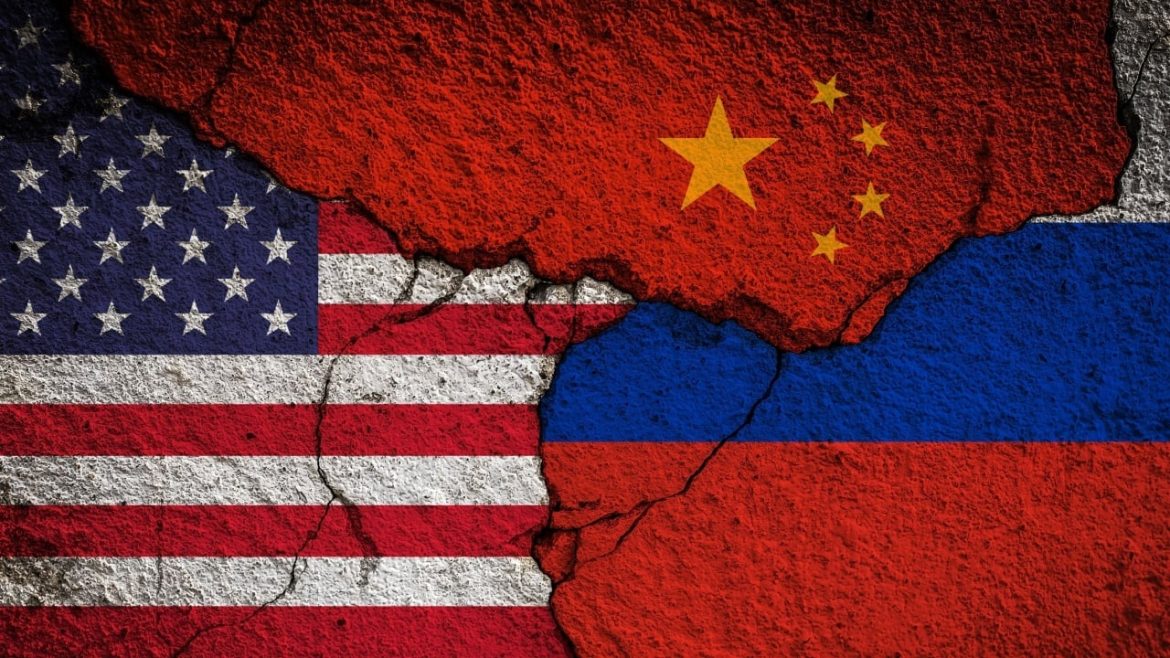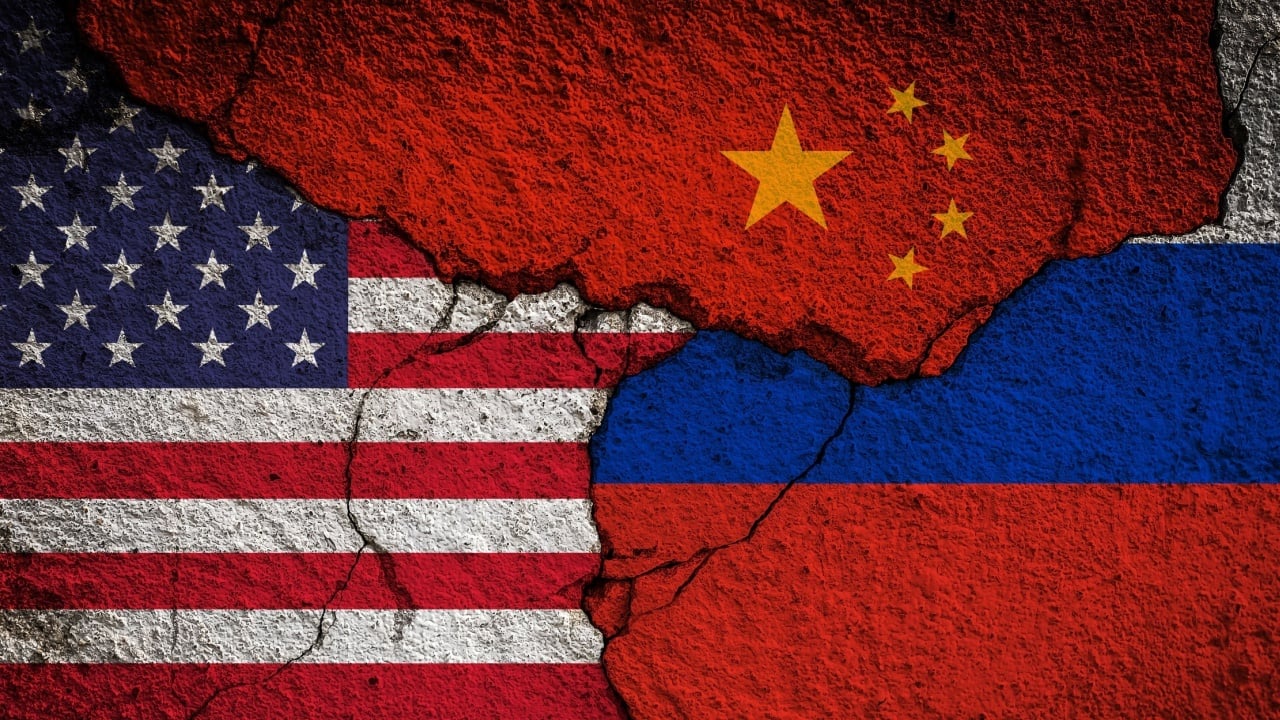Navigating the Delicate Balance: Jeffrey Sachs’ Perspective on US-China Economic Relations
Introduction: The Global Tightrope
The economic relationship between the United States and China is a high-stakes tightrope walk, where every step forward is met with cautious deliberation and potential pitfalls. Economist Jeffrey Sachs has emerged as a prominent voice in this complex dialogue, offering a nuanced perspective that challenges conventional wisdom and advocates for a more cooperative approach. His insights provide a critical lens through which to examine the trade wars, technological competition, and philosophical differences that define this dynamic. As the world watches, Sachs’ analysis serves as a reminder of the high stakes involved and the potential consequences of missteps.
The Trade War: A Self-Defeating Strategy
Sachs’ critique of the trade war initiated by the Trump administration is both sharp and multifaceted. He argues that the escalating tariffs and retaliatory measures are fundamentally “self-defeating,” a term that encapsulates the unintended consequences and economic harm inflicted on both nations.
Consumer and Business Impact
At the heart of Sachs’ argument is the impact on consumers and businesses. Tariffs, intended to protect domestic industries, often lead to higher prices for goods and services. This price inflation erodes purchasing power, making it more difficult for Americans to afford essential items and reducing their overall standard of living. Businesses, too, face increased costs, which can stifle innovation and competitiveness in the global market.
Supply Chain Disruptions
Sachs emphasizes that tariffs disrupt supply chains, creating uncertainty and discouraging investment. The interconnected nature of global trade means that disruptions in one area can have ripple effects throughout the economy. For example, tariffs on Chinese goods can lead to higher costs for American manufacturers that rely on Chinese components, ultimately making their products less competitive in the international market.
Global Economic Instability
The trade war’s impact extends beyond the U.S. and China, affecting the global economy. Sachs warns that the instability created by the trade war can lead to a slowdown in global economic growth. This, in turn, can have far-reaching consequences, including reduced trade flows, financial market volatility, and diminished confidence in the rules-based international order.
Beyond Tariffs: The Philosophical Divide
Sachs’ analysis delves deeper than the immediate effects of tariffs, exploring the underlying philosophies and strategic objectives that drive the U.S.-China relationship. He identifies a fundamental conflict rooted in differing worldviews, with the U.S. seeking to contain China’s rise and China pursuing its own path of economic and technological development.
The Containment Strategy
Sachs argues that the U.S. views China’s growing economic and technological prowess as a threat to its own dominance. This perception fuels a desire to hinder China’s development through trade restrictions, technological barriers, and diplomatic pressure. However, Sachs contends that this strategy is misguided, as it overlooks the potential benefits of cooperation and mutual growth.
The Zero-Sum Fallacy
A key aspect of Sachs’ argument is the rejection of the zero-sum mentality that often characterizes discussions about U.S.-China relations. He posits that China’s economic progress does not necessarily come at the expense of the U.S. Instead, he suggests that both nations can benefit from increased trade, investment opportunities, and collaboration on global challenges.
The Case for Cooperation
Sachs is a staunch advocate for a shift away from confrontation and towards cooperation in the U.S.-China relationship. He believes that both countries have much to gain from working together on issues of mutual interest, from climate change to global health and technological innovation.
Climate Change: A Shared Responsibility
One of the most pressing areas for cooperation is climate change. As the world’s two largest emitters of greenhouse gases, the U.S. and China have a shared responsibility to mitigate the effects of climate change. Sachs argues that collaboration on clean energy technologies, carbon reduction targets, and climate finance could benefit both countries and the world as a whole.
Global Health: A Collaborative Effort
Global health is another area where cooperation is crucial. Sachs emphasizes the importance of working together to prevent and respond to pandemics, develop new medicines, and strengthen healthcare systems in developing countries. He believes that the U.S. and China, with their vast resources and scientific expertise, can play a leading role in improving global health outcomes.
Trade and Technology: A Balanced Approach
Sachs advocates for a more open and collaborative approach to trade and technology. He believes that fostering innovation, creating jobs, and promoting economic growth in both countries can be achieved through dialogue and negotiation, rather than resorting to protectionism and confrontation. However, he acknowledges that areas of competition will inevitably arise and must be managed carefully.
The Dangers of the “China Threat” Narrative
Sachs has consistently warned against the dangers of the “China threat” narrative that has gained traction in Washington. He argues that this narrative is often based on exaggerated fears and misperceptions, leading to counterproductive policies that harm both the U.S. and China.
Overlooking the Benefits
The “China threat” narrative often overlooks the significant benefits that the U.S. has derived from its economic relationship with China. These benefits include access to cheap goods, a large export market, and investment opportunities. Additionally, China has played a constructive role in the global economy, contributing to poverty reduction, infrastructure development, and international cooperation.
The Risk of a New Cold War
Sachs worries that the “China threat” narrative can lead to a new Cold War, characterized by escalating tensions, military build-ups, and ideological conflict. He believes that such a scenario would be disastrous for both countries and the world, emphasizing the need for peaceful and constructive management of the U.S.-China relationship.
India’s Role: A Cautionary Tale
Sachs has also offered advice to other countries navigating the complex relationship between the U.S. and China. Specifically, he has cautioned India against adopting an anti-China stance in an attempt to curry favor with the United States.
The Importance of Independence
Sachs argues that India’s interests are best served by maintaining a balanced and independent foreign policy, engaging with both the U.S. and China on issues of mutual interest. He believes that India can play a constructive role in promoting regional stability and economic development by fostering cooperation between the two global powers.
The Path Forward: Strategic Patience and Understanding
Sachs’ analysis of the U.S.-China economic relationship is characterized by a call for strategic patience and understanding. He urges policymakers to avoid short-sighted policies driven by fear and misperceptions, instead focusing on building a long-term relationship based on mutual respect and cooperation.
The Need for Dialogue
Sachs believes that the U.S. and China can coexist peacefully and prosperously, even with their differing political systems and strategic interests. However, this requires a willingness to engage in dialogue, find common ground, and manage areas of disagreement constructively. He emphasizes that understanding and dialogue are paramount to ensuring a stable and prosperous future for all.
The Choice Ahead
Ultimately, Sachs presents a clear choice: continue down the path of confrontation, driven by fear and a zero-sum mentality, or forge a new path of cooperation, based on mutual benefit and a shared commitment to global prosperity. The decisions made today will determine the future of not only the U.S. and China but the entire world. The stakes are undeniably high, and the path forward demands careful consideration and a commitment to a collaborative future.
Conclusion: A Delicate Balance
The economic relationship between the United States and China is a delicate balance, one that requires careful navigation and a commitment to cooperation. Jeffrey Sachs’ insights provide a critical lens through which to examine the complexities of this dynamic, offering a nuanced perspective that challenges conventional wisdom. As the world watches, the choices made today will shape the future of global prosperity and stability. The path forward demands strategic patience, understanding, and a rejection of the “China threat” narrative, paving the way for a more collaborative and prosperous future for all.





